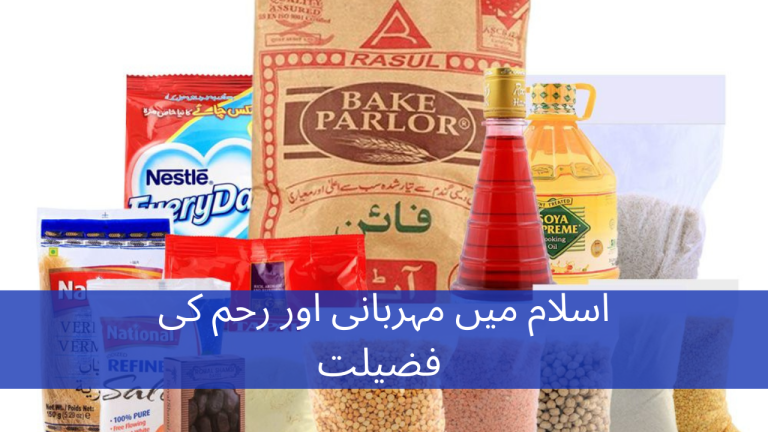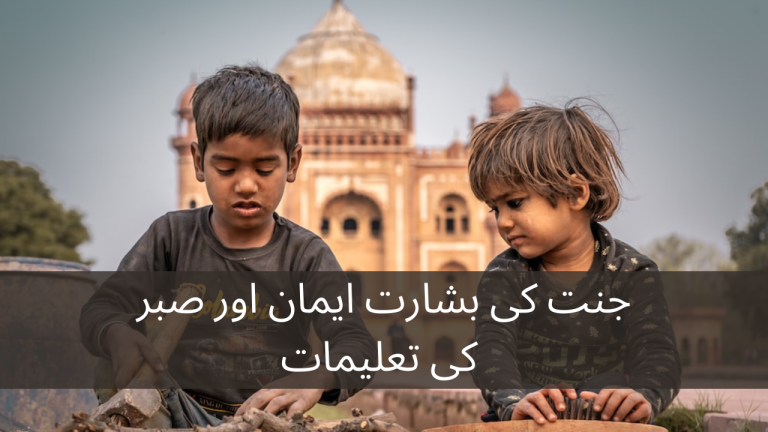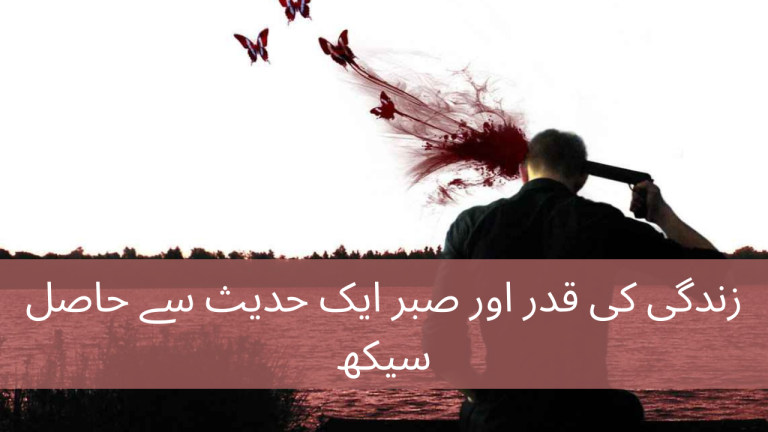Hadith Qudsi on Justice, Gratitude, and Accountability

Hadith Qudsi on Justice, Gratitude, and Accountability On the authority of Abu Dharr al-Ghifari (may Allah be pleased with him) from the Prophet (ﷺ) is that among the sayings he relates from his Lord (may He be glorified) is that He said:
Hadith Qudsi on Justice, Gratitude, and Accountability
O My servants, I have forbidden oppression for Myself and have made it forbidden amongst you, so do not oppress one another. O My servants, all of you are astray except for those I have guided, so seek guidance of Me and I shall guide you, O My servants, all of you are hungry except for those I have fed, so seek food of Me and I shall feed you. O My servants, all of you are naked except for those I have clothed, so seek clothing of Me and I shall clothe you.
O My servants, you sin by night and by day, and I forgive all sins, so seek forgiveness of Me and I shall forgive you. O My servants, you will not attain harming Me so as to harm Me, and will not attain benefitting Me so as to benefit Me.
O My servants, were the first of you and the last of you, the human of you and the jinn of you to be as pious as the most pious heart of any one man of you, that would not increase My kingdom in anything. O My servants, were the first of you and the last of you, the human of you and the jinn of you to be as wicked as the most wicked heart of any one man of you, that would not decrease My kingdom in anything.
O My servants, were the first of you and the last of you, the human of you and the jinn of you to rise up in one place and make a request of Me, and were I to give everyone what he requested, that would not decrease what I have, any more that a needle decreases the sea if put into it.
O My servants, it is but your deeds that I reckon up for you and then recompense you for, so let him who finds good, praise Allah, and let him who finds other than that, blame no one but himself. It was related by Muslim (also by at-Tirmidhi and Ibn Majah).
عَنْ أَبِي ذَرٍّ الْغِفَارِيِّ رَضِيَ اللَّهُ عَنْهُ، عَنْ النَّبِيِّ صَلَّى اللَّهُ عَلَيْهِ وَسَلَّمَ فِيمَا يَرْوِيهِ عَنْ رَبِّهِ عَزَّ وَجَلَّ أَنَّهُ قَالَ: ” يَا عِبَادِي: إِنِّي حَرَّمْتُ الظُّلْمَ عَلَى نَفْسِي وَجَعَلْتُهُ بَيْنَكُمْ مُحَرَّمًا فَلَا تَظَالَمُوا. يَا عِبَادِي: كُلُّكُمْ ضَالٌّ إِلَّا مَنْ هَدَيْتُهُ فَاسْتَهْدُونِي أَهْدِكُمْ، يَا عِبَادِي: كُلُّكُمْ جَائِعٌ إِلَّا مَنْ أَطْعَمْتُهُ فَاسْتَطْعِمُونِي أُطْعِمْكُمْ، يَا عِبَادِي: كُلُّكُمْ عَارٍ إِلَّا مَنْ كَسَوْتُهُ فَاسْتَكْسُونِي أَكْسُكُمْ، يَا عِبَادِي: إِنَّكُمْ تُخْطِئُونَ بِاللَّيْلِ وَالنَّهَارِ، وَأَنَا أَغْفِرُ الذُّنُوبَ جَمِيعًا، فَاسْتَغْفِرُونِي أَغْفِرْ لَكُمْ. يَا عِبَادِي: إِنَّكُمْ لَنْ تَبْلُغُوا ضَرِّي فَتَضُرُّونِي، وَلَنْ تَبْلُغُوا نَفْعِي فَتَنْفَعُونِي،
يَا عِبَادِي: لَوْ أَنَّ أَوَّلَكُمْ وَآخِرَكُمْ وَإِنْسَكُمْ وَجِنَّكُمْ كَانُوا عَلَى أَتْقَى قَلْبِ رَجُلٍ وَاحِدٍ مِنْكُمْ مَا زَادَ ذَلِكَ فِي مُلْكِي شَيْئًا، يَا عِبَادِي: لَوْ أَنَّ أَوَّلَكُمْ وَآخِرَكُمْ وَإِنْسَكُمْ وَجِنَّكُمْ كَانُوا عَلَى أَفْجَرِ قَلْبِ رَجُلٍ وَاحِدٍ مِنْكُمْ مَا نَقَصَ ذَلِكَ مِنْ مُلْكِي شَيْئًا، يَا عِبَادِي: لَوْ أَنَّ أَوَّلَكُمْ وَآخِرَكُمْ وَإِنْسَكُمْ وَجِنَّكُمْ قَامُوا فِي صَعِيدٍ وَاحِدٍ فَسَأَلُونِي، فَأَعْطَيْتُ كُلَّ وَاحِدٍ مَسْأَلَتَهُ، مَا نَقَصَ ذَلِكَ مِمَّا عِنْدِي إِلَّا كَمَا يَنْقُصُ الْمِخْيَطُ إِذَا أُدْخِلَ الْبَحْرَ. يَا عِبَادِي: إِنَّمَا هِيَ أَعْمَالُكُمْ أُحْصِيهَا لَكُمْ، ثُمَّ أُوَفِّيكُمْ إِيَّاهَا، فَمَنْ وَجَدَ خَيْرًا فَلْيَحْمَدْ اللَّهَ، وَمَنْ وَجَدَ غَيْرَ ذَلِكَ فَلَا يَلُومَنَّ إِلَّا نَفْسَهُ
رواه مسلم (وكذلك الترمذي وابن ماجه)
About this Hadees In Araibi ,Urdu And English
In this Hadith narrated by Abu Dharr Al-Ghifari, may Allah be pleased with him, the Prophet Muhammad, peace be upon him, conveys a message from Allah. It emphasizes Allah’s prohibition of injustice, urging His servants not to wrong one another. Allah highlights His attributes as the Guide, the Provider of sustenance, the Bestower of clothing, and the Forgiver of sins. The Hadith encourages seeking Allah’s forgiveness, mercy, and guidance.
In Arabic
في هذا الحديث الذي رواه أبو ذر الغفاري، رضي الله عنه، ينقل النبي محمد، صلى الله عليه وسلم، رسالة من الله. يشدد الحديث على حرمة الله للظلم، محثا عباده على عدم إيذاء بعضهم بعضًا. يبرز الله صفاته كمرشد، وموفر الرزق، وممن يكسو، ومغفر الذنوب. الحديث يشجع على الاستغفار وطلب رحمة الله وتوجيهه.
In Urdu
ابو ذر الغفاری، رضی اللہ عنہ، کی روایت میں یہ حدیث آئی ہے جس میں نبی کریم صلی اللہ علیہ وآلہ وسلم اللہ کی طرف سے پیغام پیش کرتے ہیں۔ اس میں اللہ کی ظلم سے حرمت کی گئی ہے اور اس پر زیادہ سے زیادہ محنت کرنے والوں کو نصیحت کی گئی ہے کہ وہ ایک دوسرے کو ظلم نہ کریں۔ اللہ نے خود کو ہدایت دینے والا، رزق فراہم کرنے والا، لباس فراہم کرنے والا، اور گناہوں کے معاف کرنے والا بتایا ہے۔ حدیث میں اللہ سے مغفرت، رحمت اور ہدایت حاصل کرنے کی ترغیب دی گئی ہے۔
In English
The Hadith underscores Allah’s prohibition of injustice, urging His servants not to wrong one another. It highlights Allah’s attributes as the Guide, Provider of sustenance, Bestower of clothing, and Forgiver of sins. The Hadith encourages seeking Allah’s forgiveness, mercy, and guida
This hadith provides several profound benefits and lessons for believers
Prohibition of Injustice
- The hadith begins with the emphasis on Allah’s self-prohibition of injustice, setting a moral standard for humans to follow. It encourages individuals to avoid wrongdoing and treating others unjustly.
Seeking Allah’s Guidance
- The hadith encourages seeking guidance from Allah, recognizing that human guidance is ultimately from Him. It promotes humility and dependence on Allah for righteous living.
Gratitude and Reciprocity
- The hadith highlights the reciprocity between human actions and Allah’s responses. Gratitude is emphasized, as it suggests that if we thank Allah for His provisions, He will continue to provide for us.
Recording of Deeds
- The notion that our deeds are recorded and will be presented to us underscores the concept of accountability. This serves as a reminder to be mindful of our actions and strive for righteousness.
All-Encompassing Mercy
- Allah’s forgiveness is emphasized, reassuring believers that, despite their shortcomings, seeking forgiveness will lead to Allah pardoning their sins. This aspect reflects the vastness of Allah’s mercy.
Individual Responsibility
- The hadith underscores individual responsibility for one’s actions. If a person finds goodness, they should attribute it to Allah’s guidance and be grateful. Conversely, if there is a lack of goodness, one should take responsibility for their choices.
Equality in Accountability
- The hadith stresses that everyone, regardless of status or background, will be accountable for their deeds. This promotes a sense of equality and justice in the eyes of Allah.
Encouragement for Good Deeds
- The hadith encourages believers to engage in good deeds, as Allah’s generosity is depicted as boundless. It motivates individuals to strive for righteousness and seek Allah’s blessings.
Humility and Dependence on Allah
- The hadith promotes humility by acknowledging human dependence on Allah for guidance, sustenance, clothing, and forgiveness. It instills a sense of reliance on the Divine in every aspect of life.
In summary, this hadith offers a comprehensive guide for ethical living, emphasizing justice, gratitude, accountability, and the mercy of Allah. It serves as a source of inspiration and guidance for believers striving to lead a righteous life.
Conclusion
This hadith serves as a profound guide for believers, offering valuable lessons on justice, gratitude, accountability, and the boundless mercy of Allah. It emphasizes the prohibition of injustice, encourages seeking guidance from Allah, and underscores the reciprocity between human actions and divine responses.
The concept of individual responsibility and accountability is highlighted, promoting humility and a sense of equality among believers. Ultimately, the hadith inspires believers to engage in good deeds, seek forgiveness, and rely on Allah in every aspect of life. It stands as a timeless source of guidance for those striving to lead a righteous and conscientious life in accordance with Islamic principles.





